Todos os idiomas

O Herói Máscara que Redefiniu o Gênero Tokusatsu
"Kamen Rider," transmitido pela TV Asahi em 1971, é um dorama icônico que marcou o início de uma das franquias mais duradouras e influentes do gênero tokusatsu (filmes ou séries japonesas com efeitos especiais). A série segue a história de Takeshi Hongo, um jovem motociclista que é transformado em um ciborgue pelo malvado grupo Shocker, mas consegue escapar antes de ser completamente controlado por eles. Usando sua nova identidade como Kamen Rider, Hongo dedica sua vida a combater Shocker e proteger a humanidade.O dorama é uma combinação envolvente de ação, drama e ficção científica, com uma narrativa que aborda temas de justiça, sacrifício e a luta incessante contra o mal. Cada episódio apresenta novos desafios e vilões, com Kamen Rider enfrentando uma variedade de monstros criados por Shocker, sempre superando as adversidades com sua força, inteligência e senso de justiça.
Visualmente, "Kamen Rider" é caracterizado por suas cenas de ação emocionantes e coreografias de combate bem executadas, muitas vezes em cenários urbanos ou naturais que amplificam o senso de perigo e aventura. A icônica motocicleta de Kamen Rider e seu design de traje – uma mistura de inseto e motociclista – tornaram-se símbolos duradouros da cultura pop japonesa.
Além de suas qualidades técnicas, "Kamen Rider" também se destaca pela profundidade de seu protagonista. Takeshi Hongo não é apenas um herói invencível; ele é um personagem complexo que lida com a dor de sua transformação forçada e a responsabilidade de seu poder, tornando-se um exemplo de força moral e determinação.
"Kamen Rider" é uma série que não apenas definiu o gênero tokusatsu, mas também influenciou uma geração inteira de espectadores. Com uma história emocionante e uma mensagem de esperança e justiça, este dorama continua a ser uma pedra angular da televisão japonesa, com um legado que perdura até os dias atuais.
Esta resenha foi útil para você?

Esta resenha pode conter spoilers
Kamen Rider 1971 - An Aged Titan
The original Kamen Rider 1971 cannot be understated as an incredibly important pillar of pop culture in Japan and beyond. The series that truly started it all. With its iconic design of the original Kamen Rider (referred to as Ichigo) and the subsequent second Rider (referred to as Nigo), it paved the way for a founding father in the tokusatsu genre. However, it's a difficult beast to talk about, because while charming, it is incredibly flawed. The series starts very strongly, with a lean towards horror. It was always monster-of-the-week, but what made it interesting early on was how it leaned into the fear of everyone involved. Even the main character, Ichigo, has internal fears that are set up early on. However, as the series progresses, in order to stay on the air it had to be changed to be more lighthearted. Unfortunately this drops a lot of the overt story of Kamen Rider 1971 and ends up making it an incredibly repetitive watch, as plot only truly progresses about once every thirty episodes or so, and with it being the longest Kamen Rider series on its own (not including sequel shows like Black & Black RX or Kuuga & Agito) it can sometimes be a gauntlet. Make no mistake, this show is NOT made to be binged AT ALL. And while it feels unfair of me to review a show made 52 years ago as if it was made in the modern era, we have to concede that our perception of these things, including the very way in which it is viewed, has fundamentally changed since its creation. We have to acknowledge the way that these things change, and that includes the franchise itself as it progresses. At this point, while this is the originator of all Kamen Riders, I would in no way say it is a good first show to watch for inquisitive minds interested in the franchise due to its inability to be enjoyably be watched in succession like some others. It is an entertaining watch in short bursts, but mind-numbing when watched too quickly. If you do watch it, try not to binge it to get through it. Take sips, don't chug. Enjoy the fun and crunchy practical effects and the inventive ways they get around having zero budget. The camp can be fun, the designs can be silly, and it can be a series that gets a good laugh or two, even if unintentionally. But if you are tempted to watch it quickly to get to some of the other stuff in the franchise, it will become a difficult watch as the formulaic nature of the series turns your brain into putty.Esta resenha foi útil para você?

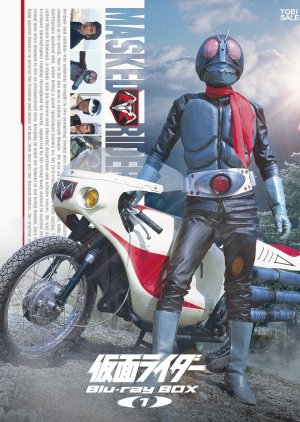



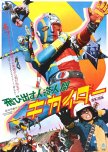
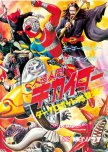
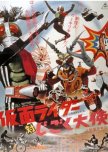
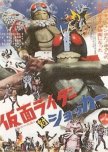

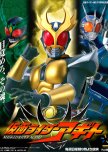
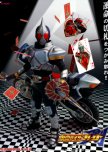


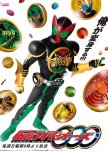
![Kaiju,Tokusatsu,Mecha,etc* [Multi-List]](https://i.mydramalist.com/aEgymt.jpg)
![Kaiju,Tokusatsu,Mecha,etc* [Multi-List]](https://i.mydramalist.com/Zbd0q_4t.jpg)
![Kaiju,Tokusatsu,Mecha,etc* [Multi-List]](https://i.mydramalist.com/YAZ2gt.jpg)
![Kaiju,Tokusatsu,Mecha,etc* [Multi-List]](https://i.mydramalist.com/9xYJyt.jpg)
![Kaiju,Tokusatsu,Mecha,etc* [Multi-List]](https://i.mydramalist.com/xbjEr_4t.jpg)
























